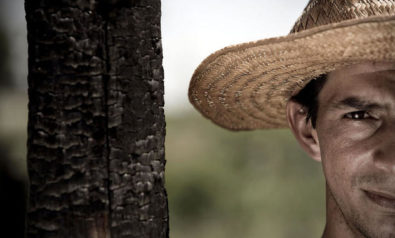
The impeachment of Paraguay's President, Fernando Lugo, raises questions about politics and power structures in Latin American Democracy.
Background
On the morning of June 15, three hundred Paraguayan police officers entered the estate of Blas Riquelme, a wealthy soy farmer. Their orders were to remove 100 landless peasants who had been occupying Riquelme’s property for over a month. But the campesinos did not go peacefully. Gunfire erupted along both sides, killing eleven peasants and six police officers and wounding nearly 100 more.
The clash produced a political firestorm, ushering the hasty and near unanimous impeachment of the Paraguayan President, Fernando Lugo. The lower chamber of congress voted 76-1 finding Lugo guilty of “poor performance of his duties.” The senate later confirmed the decision by 39-4. Congress gave the president one days’ notice and two hours to defend himself. Hours after the congressional decision, Vice President Federico Franco had already assumed Lugo’s position.
Many Latin American statesmen have called the impeachment a thinly veiled coup orchestrated by the Colorado Party, which dominates Paraguay’s legislature along with the Liberal Party. The Colorados have continuously opposed political outsider and ex-bishop Lugo, since he ended their 60-year grasp on power in 2008. The impeachment comes just nine months before the end of Lugo’s term in 2013. He was not seeking re-election.
Who is Lugo?
Lugo campaigned as a champion of the poor, determined to improve conditions in a nation where 60% of the population lives below the poverty line and 2% of the people own 80% of the land. Much unlike the corrupt leaders of Paraguay’s past who filled their own pockets through their political office, Lugo had even refused to take a salary. Unfortunately, he failed to deliver on many of his promises, the result of constant political impasse.
The June catastrophe provided the Colorados and their allies in the Liberal Party with the opportunity to depose the already embattled president.
What Does Lugo’s Impeachment Mean for Latin America?
Lugo’s ouster is the fourth removal of a democratically elected president in Latin America since a wave of democracy in the late 80s and early 90s. In 2002, a military coup removed Hugo Chávez from the presidency for 48-hours; another in Honduras permanently deposed leftist President Manuel Zelaya in 2009. A popular revolt in Ecuador, led by an alliance of peasant organizations ousted the president in 2000.
Though the Paraguayan impeachment lacks the traditional bloody take over by the military, Paraguay’s civilian leadership is one of Latin America’s least democratic. The Colorados, the party of Alfredo Stroessner’s 40-year dictatorship, still control the country’s political machinery. Paraguay’s semi-feudal land distribution is largely a product of concessions given to Stroessner’s family and his top political allies. Blas Riquelme, a member of the Colorado Party, received his contested estate in this fashion.
Response from Latin America and the World
In the recent Mercosur summit, Brazil, Argentina and Uruguay all agreed to suspend Paraguay from the South American customs union. So far, seven Latin American countries have temporarily recalled their ambassadors. Many others have initiated Paraguay’s removal from the Organization of American States (OAS) and Chávez has cut off all oil shipments to the country. But despite the diplomatic condemnation, few significant sanctions have been placed, over fears that any further economic damage would hurt the country’s poor.
Brazil holds the most leverage over Paraguay, yet it has been hesitant to act. It could suspend the Ituaipu Dam contract with Paraguay, worth an annual US$360m. But President Dilma Rousseff fears that such a sanction would threaten São Paolo’s power supply, since Paraguay currently sells back 90% of the power generated from its half of the joint project.
The situation is further complicated by the nearly 350,000 Brazilians living in Paraguay, many of whom had purchased of cheap land in the 60s and 70s. These immigrants were threatened by Lugo’s promises to redistribute property to the landless peasantry. The Para-Brazilians have already rallied behind the new government. Meanwhile, Barack Obama has been more cautious, retaining US officials in Asunción. The OAS also agreed not to suspend Paraguay’s interim government from the diplomatic forum. On July 16, the European Union’s Parliament dispatched an eight member mission to Paraguay to investigate the situation.
The Paraguayan Reality Even as pressure mounts against the new government led by Vice President Franco of the Liberal Party, little can be done to restore Lugo to the executive. He lacks support in the legislature, the judiciary is extraordinarily corrupt and the peasantry has given up on him. As he put it himself, "I think that the Honduran itinerary will be repeated in Paraguay.” Whether Franco leaves office after his term officially expires in nine months will tell all.
For more than 10 years, Fair Observer has been free, fair and independent. No billionaire owns us, no advertisers control us. We are a reader-supported nonprofit. Unlike many other publications, we keep our content free for readers regardless of where they live or whether they can afford to pay. We have no paywalls and no ads.
In the post-truth era of fake news, echo chambers and filter bubbles, we publish a plurality of perspectives from around the world. Anyone can publish with us, but everyone goes through a rigorous editorial process. So, you get fact-checked, well-reasoned content instead of noise.
We publish 2,500+ voices from 90+ countries. We also conduct education and training programs on subjects ranging from digital media and journalism to writing and critical thinking. This doesn’t come cheap. Servers, editors, trainers and web developers cost money.
Please consider supporting us on a regular basis as a recurring donor or a sustaining member.
Support Fair Observer
We rely on your support for our independence, diversity and quality.
Will you support FO’s journalism?
We rely on your support for our independence, diversity and quality.








